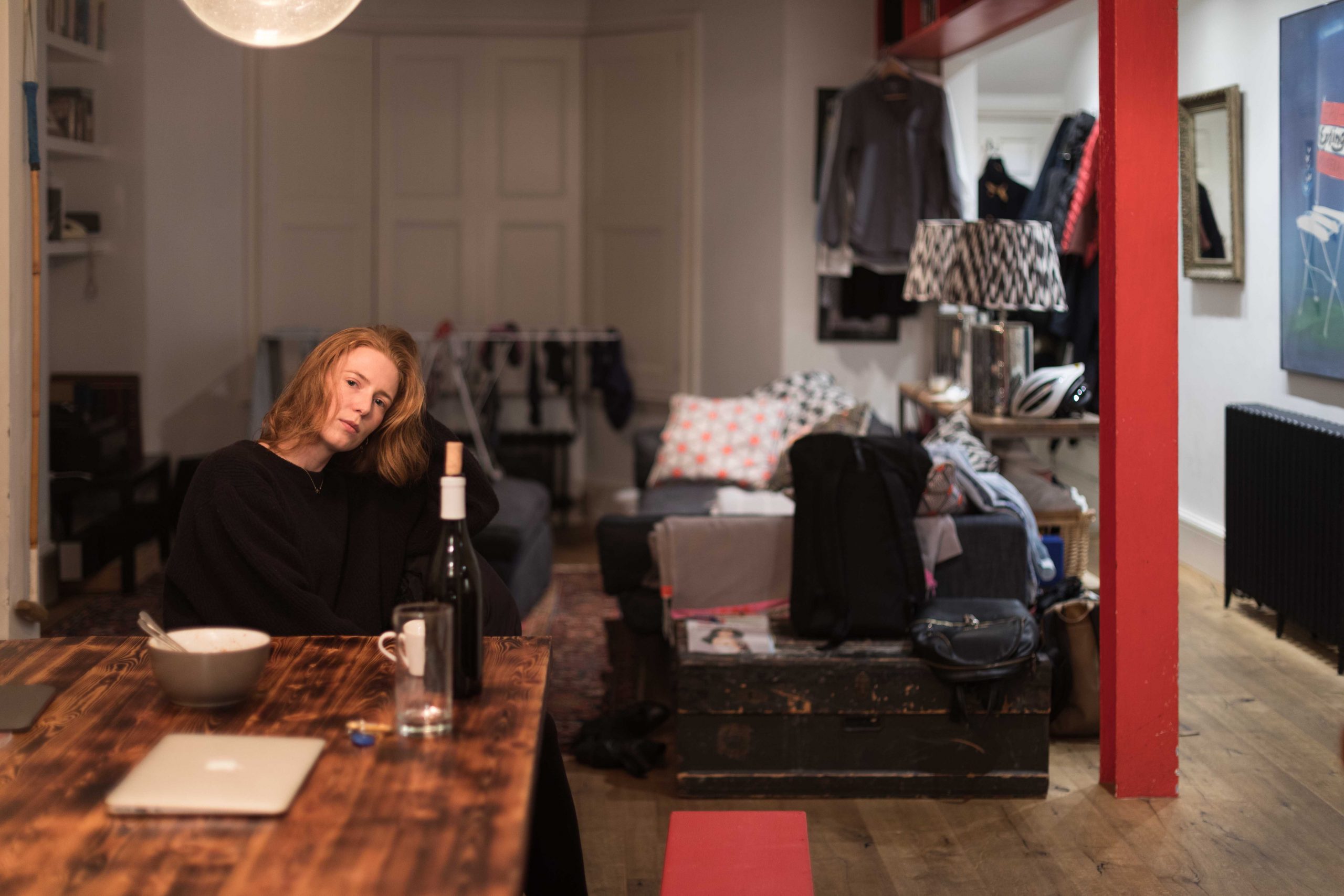
© Justin Carey
Shutter Hub member Justin Carey has been with us since our humble beginnings; he is one of the reasons we exist as a community – spend time with him or his work and you’ll feel it too, there is something very special about the way he sees the world, and how he responds to and interacts within it. Justin combines his photographic practice with a career as a physician.
His night-time images told us stories of lone hours in the city, the beauty and the sorrow that converged at the pavement edge, lit gently with a glimmer of street-light hope. His portraits hold our attention as we engage with empathy, looking straight into the souls of complete strangers. The sense of compassion is always evident.
Justin began working on Reaching Out Into The Dark while completing an MA in photography at Falmouth University – examining urban solitude, how people variously experience and relate to this state of being alone (and sometimes feeling disconnected) in the modern world. The project is ongoing and Justin would warmly welcome your contact about the project for any reason, particularly if you might be interested in participating in some way, or being one of the future subjects.
We asked Justin to share his project, to tell us more, to share his ideas and to reach out to the rest of us who might need to read this.
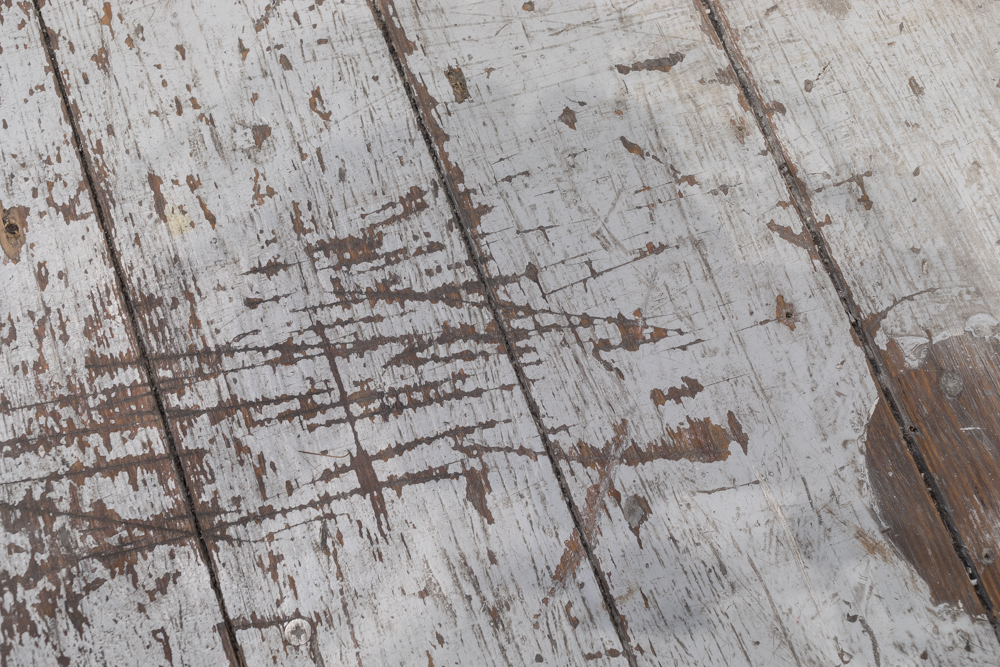
© Justin Carey
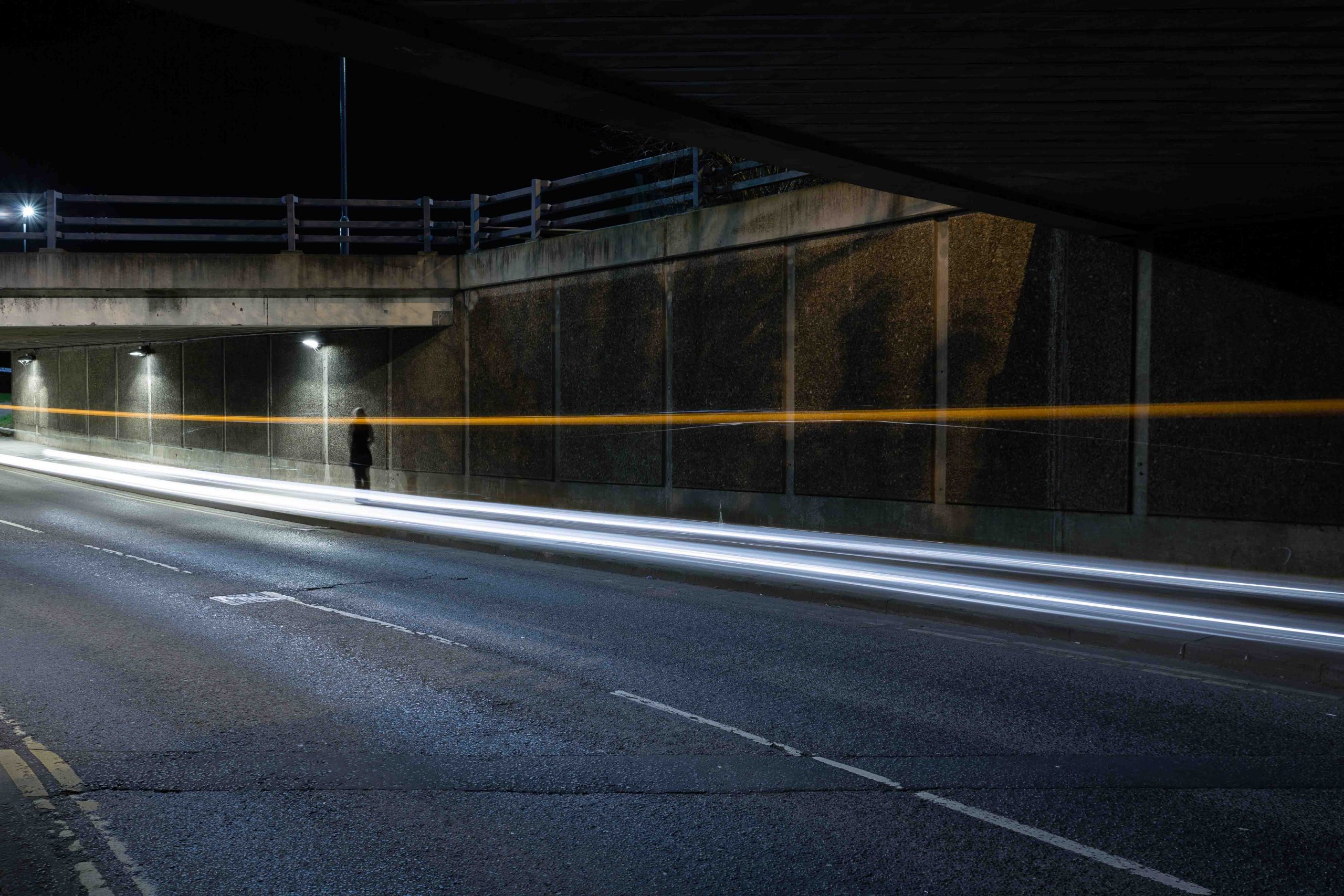
© Justin Carey
Urban life for many of us is just a default. Neither a positive nor a negative, it just is. As you collapse into bed after another grinding day there’s rarely a thought of how fortunate you are to be living the dream because there’s another demand, another day and another dollar to worry about tomorrow.
Urban life can be exhiliratingly kaleidoscopic too, bombarded daily as we are with ever more things to do and places to go…a new pop-up vegan roller-skating vinyl disco juice bar? Yes please!
For some though, life in the urban landscape is just horribly isolating.
Travelling tightly packed on trains, never making eye contact with a soul. Getting in late from work on a Friday night with nothing more than a microwave meal and your own company to look forward to, laughter with friends or the touch of a partner replaced by a box set. Living in that desirable city apartment development without ever knowing even the name of your neighbour on the other side of the wall that divides people’s lives into expensive concrete boxes.
For some, the urban ideal has always felt like a fragile illusion, our lives never quite seeming to live up to the advertisements. Writing now, from imposed self-isolation, with the Covid-19 news swirling around us, it’s easier to make out how tenuous so many aspects of our lives really are and how easy it is to be lonely while surrounded by people.
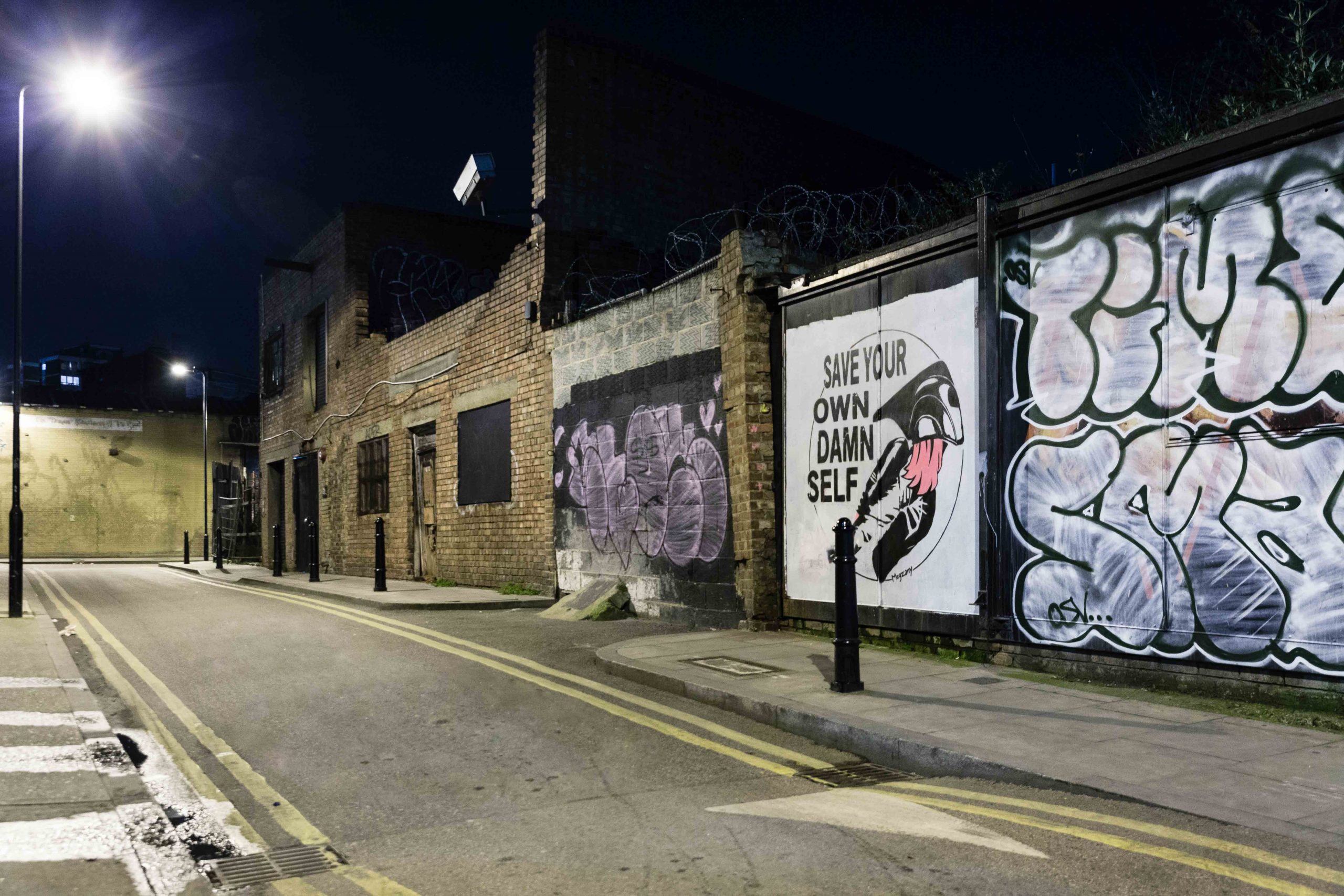
© Justin Carey
My work has always been in some way concerned with solitude, though not always consciously. I first picked up a camera when I was living in Australia, thousands of miles away from home, friends and family. The subjects that captured my attention then, looking back, were all subconscious expressions of my own isolation.
Reaching Out Into The Dark arose from this place I suppose. I saw an increase in public discourse about loneliness and its relationship to mental health and physical health outcomes that mirrored my own personal experiences but also my professional experience as a doctor specialising in the care of older people. Loneliness is common among older people and directly impacts wellbeing as well as increasing their use of health services and worsening their health outcomes. I see this daily, and reflecting on this and my own experience of having lived alone for almost all of my adult life, the project became the focus of a photography MA at Falmouth University.
It’s useful to attempt to define loneliness at this point:
A subjective, unwelcome feeling of lack or loss of companionship. It happens when we have a mismatch between the quantity and quality of social relationships that we have, and those that we want. (Perlman & Peplau, 1981)
The problem of urban loneliness is significant. The UK Government estimated in 2018 that between 5% and 18% of UK adults feel lonely often or always. The issue does not discriminate, affecting people of all ages and socioeconomic groups. A cursory search of data in the public domain reveals the following:
- 9 million people in the UK across all adult ages are either always or often lonely.
- Action for Children found that 43% of 17 – 25 year olds who used their service had experienced problems with loneliness.
- Action for Children have also reported that 24% of parents surveyed said they were always or often lonely.
- 50% of disabled people will be lonely on any given day.
- There are 1.2 million chronically lonely older people in the UK, half a million of whom go at least five or six days a week without seeing or speaking to anyone at all.
- 40% of all older people (about 3.9 million) say the television is their main company.
Loneliness is also bad for your health: As bad for your health as smoking 15 cigarettes a day and worse for you than obesity. Lonely people are more likely to suffer from dementia, heart disease and depression and loneliness increases your risk of death by 29%. This impact is estimated to cost the UK economy £2.5 billion annually. While these statistics describe the UK population, similar figures are seen in other countries including the US, and all of these metrics are made worse by the stigma that is attached to loneliness. It’s something that many people find difficult to admit even to themselves, let alone to discuss with others or to seek help for.
Loneliness is thus now rightly considered a public health issue, notwithstanding how impertinent it might be to reference another public health concern right now.
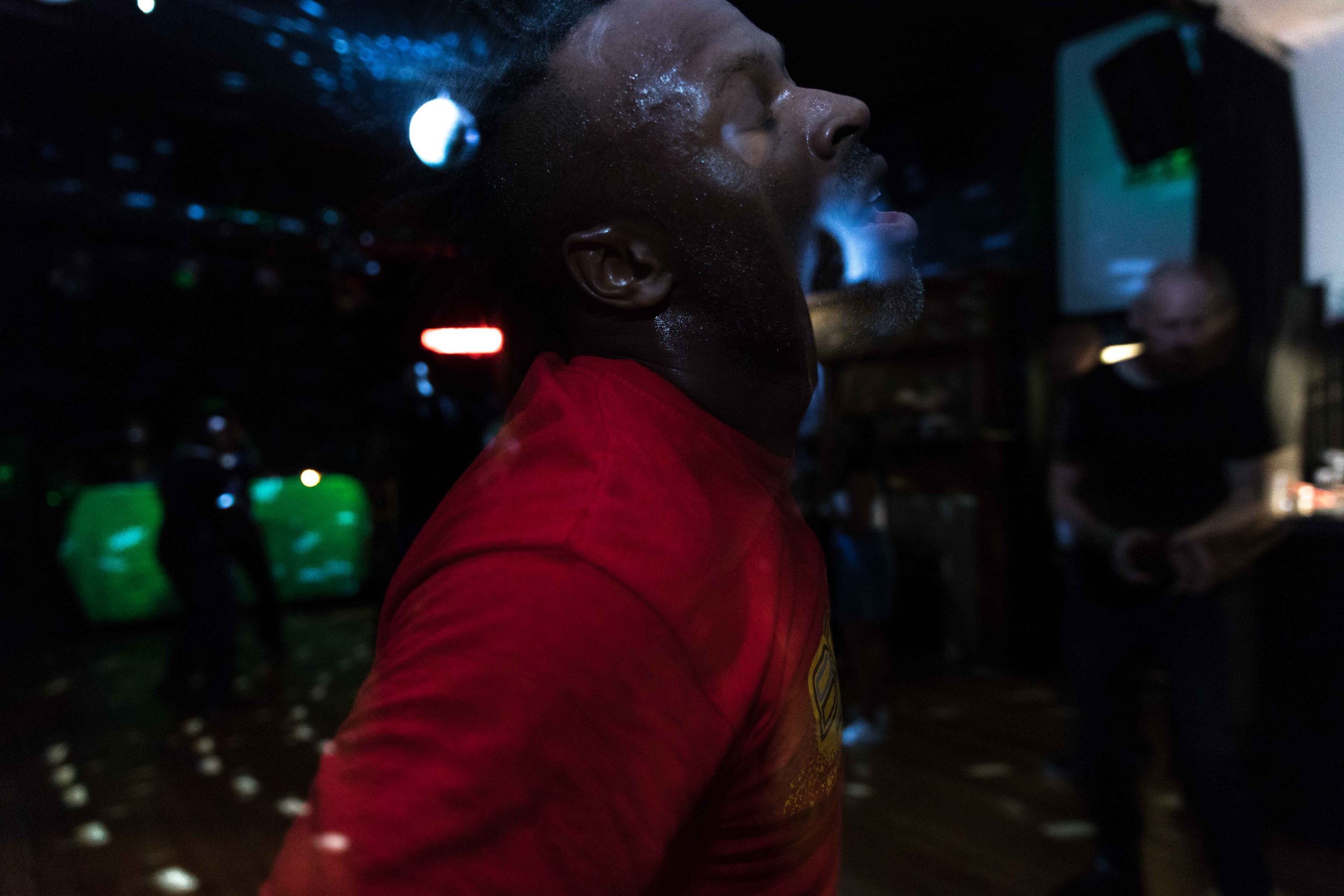
© Justin Carey
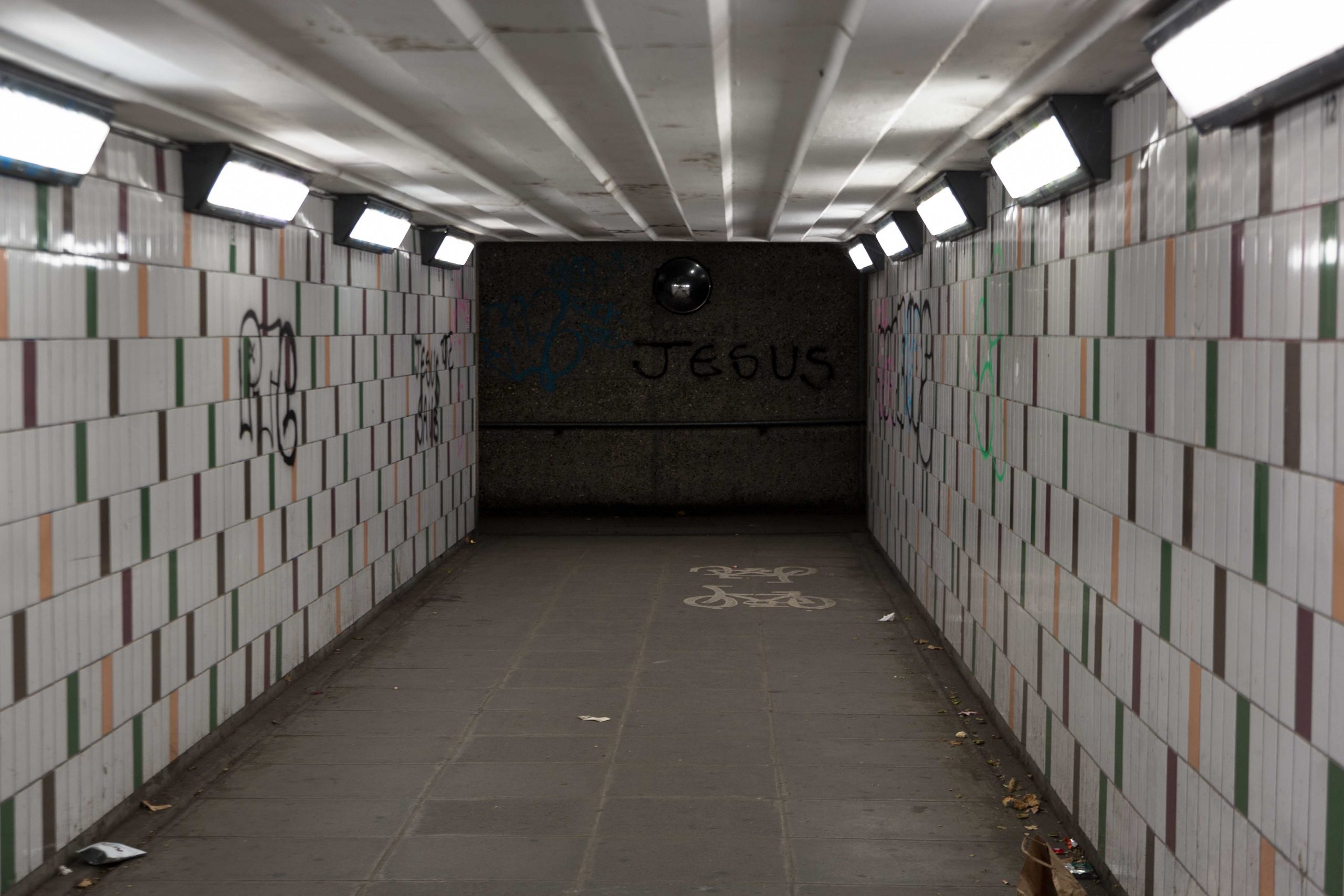
© Justin Carey
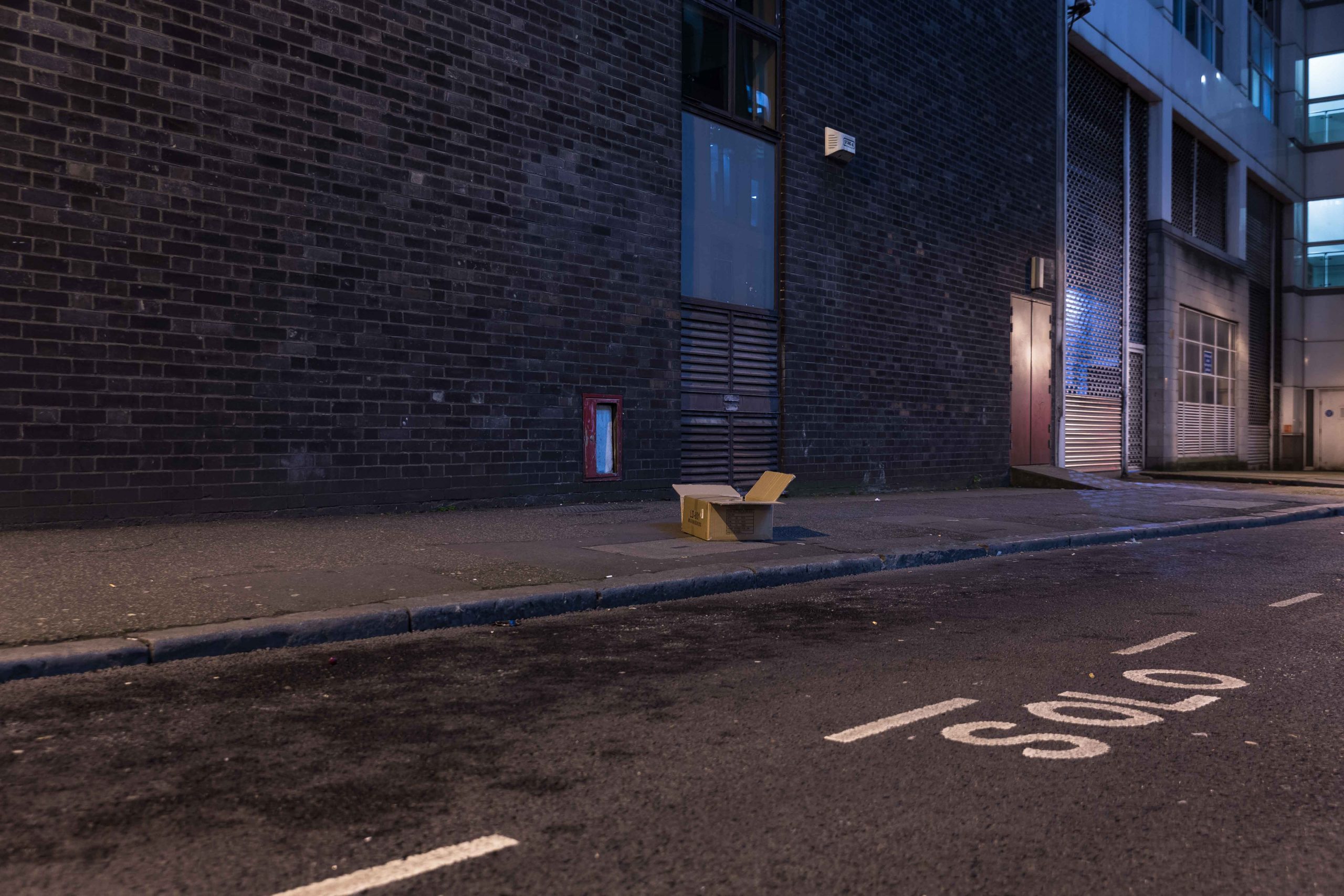
© Justin Carey
As the reality of this problem has become increasingly clear over the last few years, discussions about the impact of loneliness have seeped into mainstream consciousness and triggered an organisational and political response, most poignantly in the work of the late Jo Cox MP who set up a cross-party Commission on Loneliness that has subsequently gone on to inform UK Government policy.
It was in this context that I began working on my little project. Originally, I simply wanted to find ways to depict loneliness visually, illustrating the contradictions in the urban spaces we populate (overpopulate?) that often also serve to separate us from one another. I then began trying to understand how other people experienced loneliness, eliciting this information using structured questionnaires in some cases or by simply asking people to reflect on the music, images or memories that they felt best articulated their own experiences.
As the research progressed, the more I realised the true breadth of this topic. Firstly, if one accepts loneliness as the negative experience of being alone, then it becomes necessary to acknowledge the positive aspects of this state. In my case, I described this positive state as solitude and came to consider solitude and loneliness as representing two ends of a continuum on which all of us can be found, at different points at any given time. Acknowledging this was really important as it provided an antidote to the subjective darkness of loneliness and gave the whole project a much greater ring of truth. Not everyone who is alone is lonely and it was really important to understand and attempt to properly depict this.
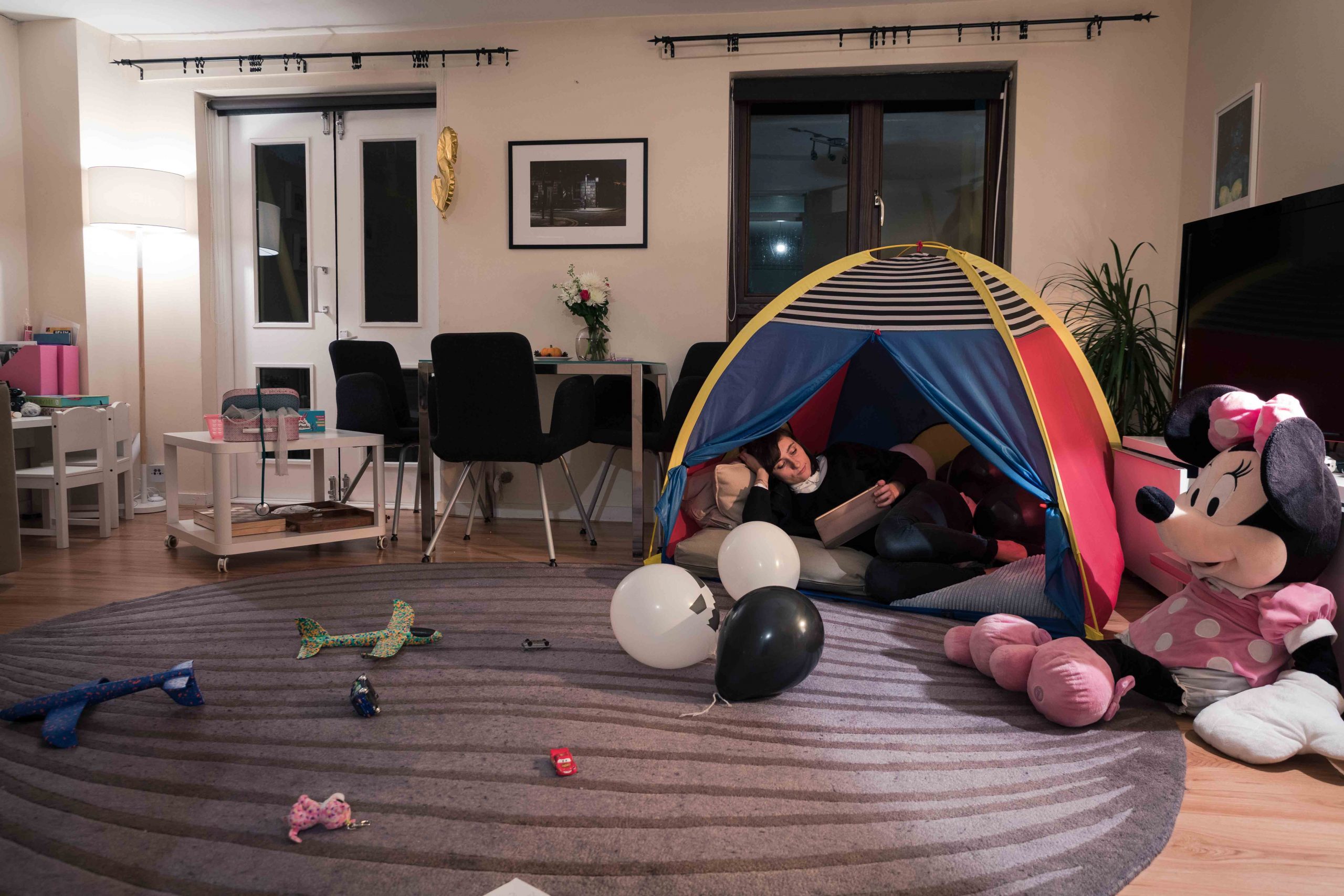
© Justin Carey
I continued gathering information from different sources but found myself feeling increasingly detached from things, struggling to see the messages in the words, pictures and songs of the respondents to my project, overlooking it all like a sparrow flying over a field attempting, without success, to spot the worm.
The breakthrough came when I belatedly realised that I had to put myself at the centre of the work. In trying to universalise the depiction of this state of loneliness/solitude and be an objective reporter, I’d lost sight of my own perspective and with it the map I needed to navigate the information that I’d collected from my collaborators. Once I began to synthesize my own experiences with those of my collaborators the key themes emerged.
This experience is universal – we all feel lonely at times and even the most extroverted have benefitted from a little ‘me time’ at one point or another. I was keen to ensure that the project was able to reflect the truth that we’re all in this together and thus there should be no stigma or shame at all in it. Whether struggling with loneliness or feeling your haven of solitude under threat, I hoped that this work would somehow help to show people that being alone is normal, that it’s ok to be lonely and to admit that you are, because you’re never alone in being, or feeling, alone.
Furthermore, the morbidity of loneliness doesn’t have to be considered as an inevitable endpoint. There are various resources and organisations available to support and connect people and it was important to me that I was able to signpost this somehow, which led to the creation of a dedicated page on the project website which acts as a directory of relevant resources.
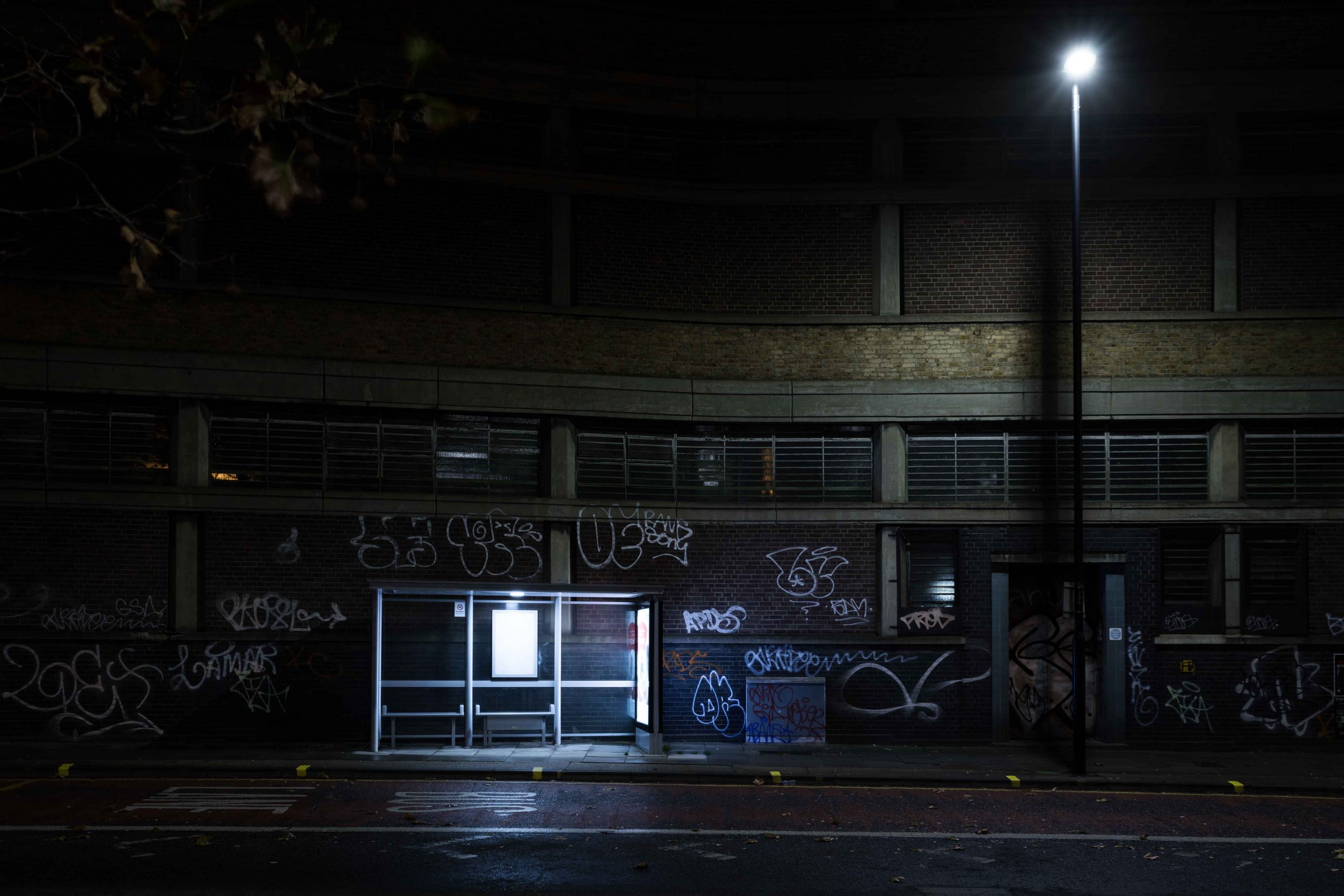
© Justin Carey
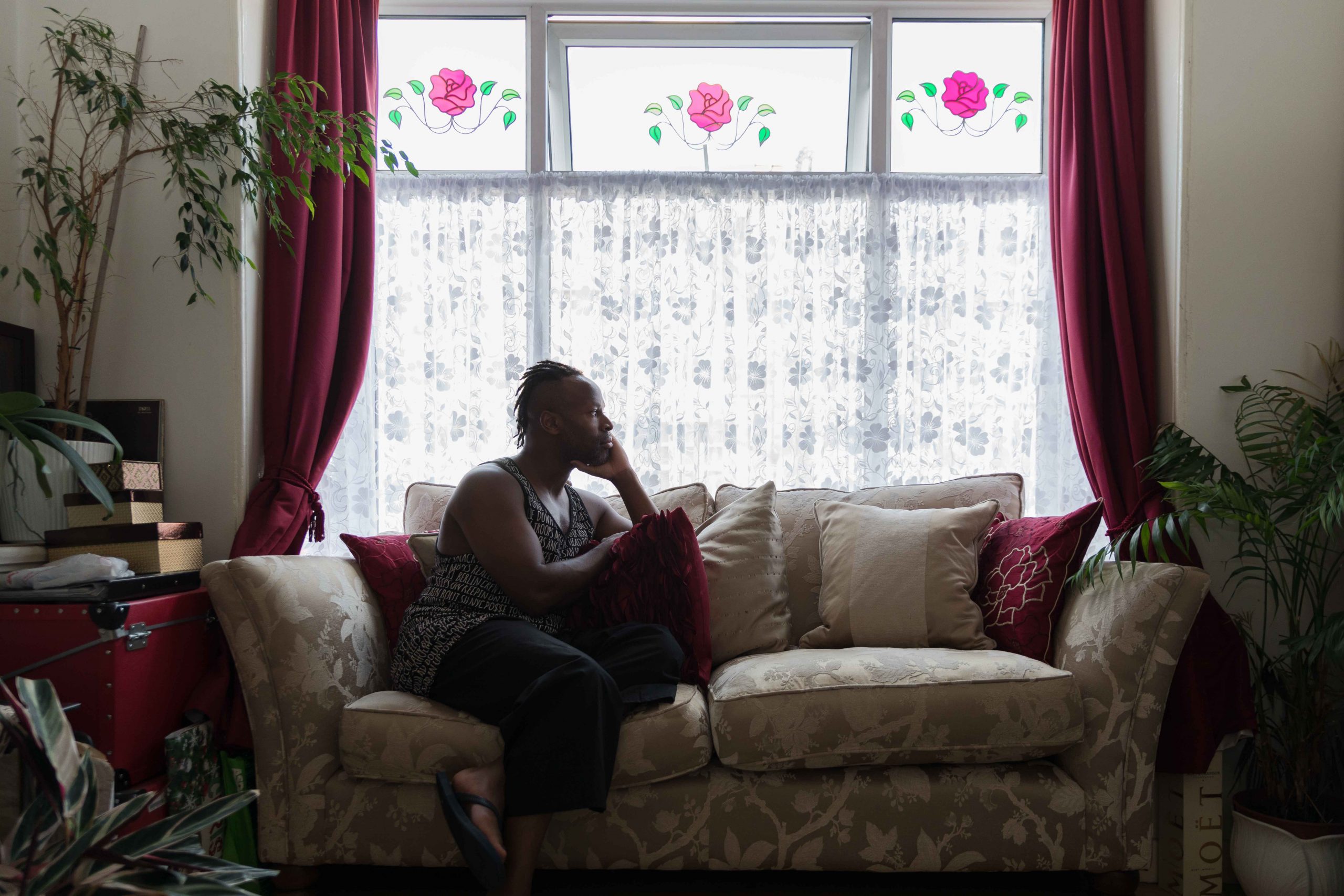
© Justin Carey
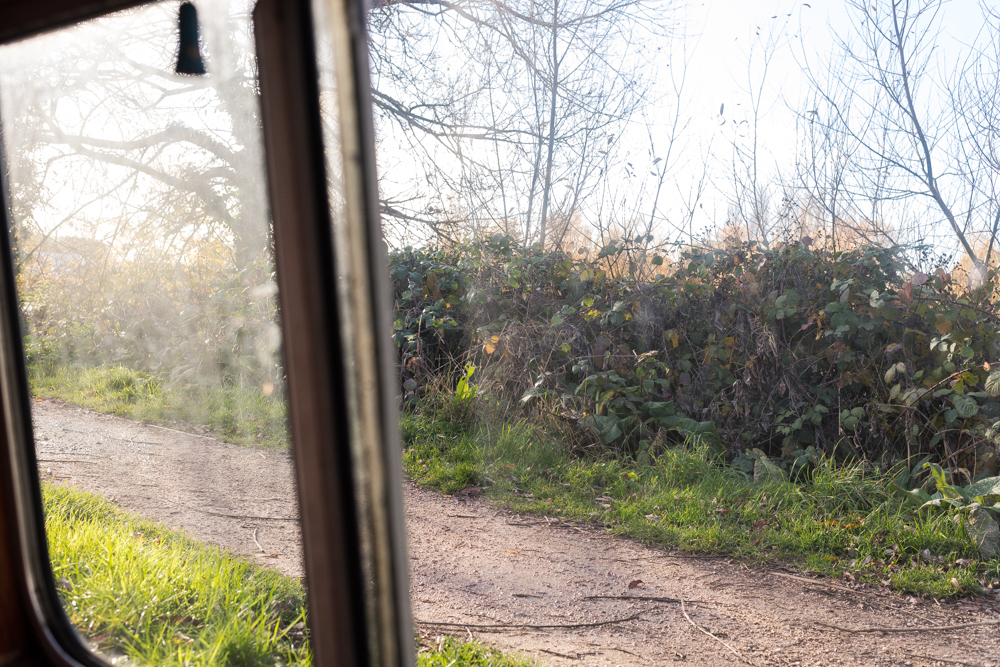
© Justin Carey
The project is a combination of images, words and songs. The hope is that each strand of the work complements the other and amplifies the whole. The words come from my own writing or from my collaborators, in the form of excerpts from interview transcripts or creative writing that they chose to contribute. The songs reflect the fact that I’d often create images either in direct response to a particular song or with a song or lyric in mind. As I shared this idea I realised that my collaborators often also associated songs with this emotional state or experience, and so a collection of these songs became the project playlist, which is also accessible from the website.
The title of the project hopefully suggests this idea of making a leap into the unknown, in search of a connection to the universal thread that loosely binds all of us. I’ve been grateful that since publishing and presenting Reaching Out, there have been numerous examples of people connecting with the project, or with me, engaging in conversation and discussion about this issue and utilising the space for interaction that the work opens up.
I’m also incredibly appreciative of the opportunity Shutter Hub have given me to show excerpts from the project in different contexts, from which further conversations and connections have developed.
More than anything, I want this work to contribute to us having those conversations and making connections and that brings me back to where we are right now, in this time of great uncertainty and no small amount of fear. I’m currently confined in my flat, alone, self-isolating like many others will be at the moment, and while this state is only temporary (hopefully!) it’s impossible to miss the wider sense of creeping panic as each appearance of a Government official in front of a podium strips away another layer from the society we all previously took for granted. The majority of us will experience some degree of enforced separation over the coming weeks and whether this is new for you or further exacerbates your existing sense of isolation, I would encourage you to reach out to someone, in some way. Say hello to the mystery neighbour (at the appropriate social distance!), or maybe fire off a text to that friend you lost touch with…The truth is we are all interconnected and co-dependent, we always have been, and maybe it shouldn’t have taken an invisible enemy to remind us of this, but here we are. We are all going to need each other.
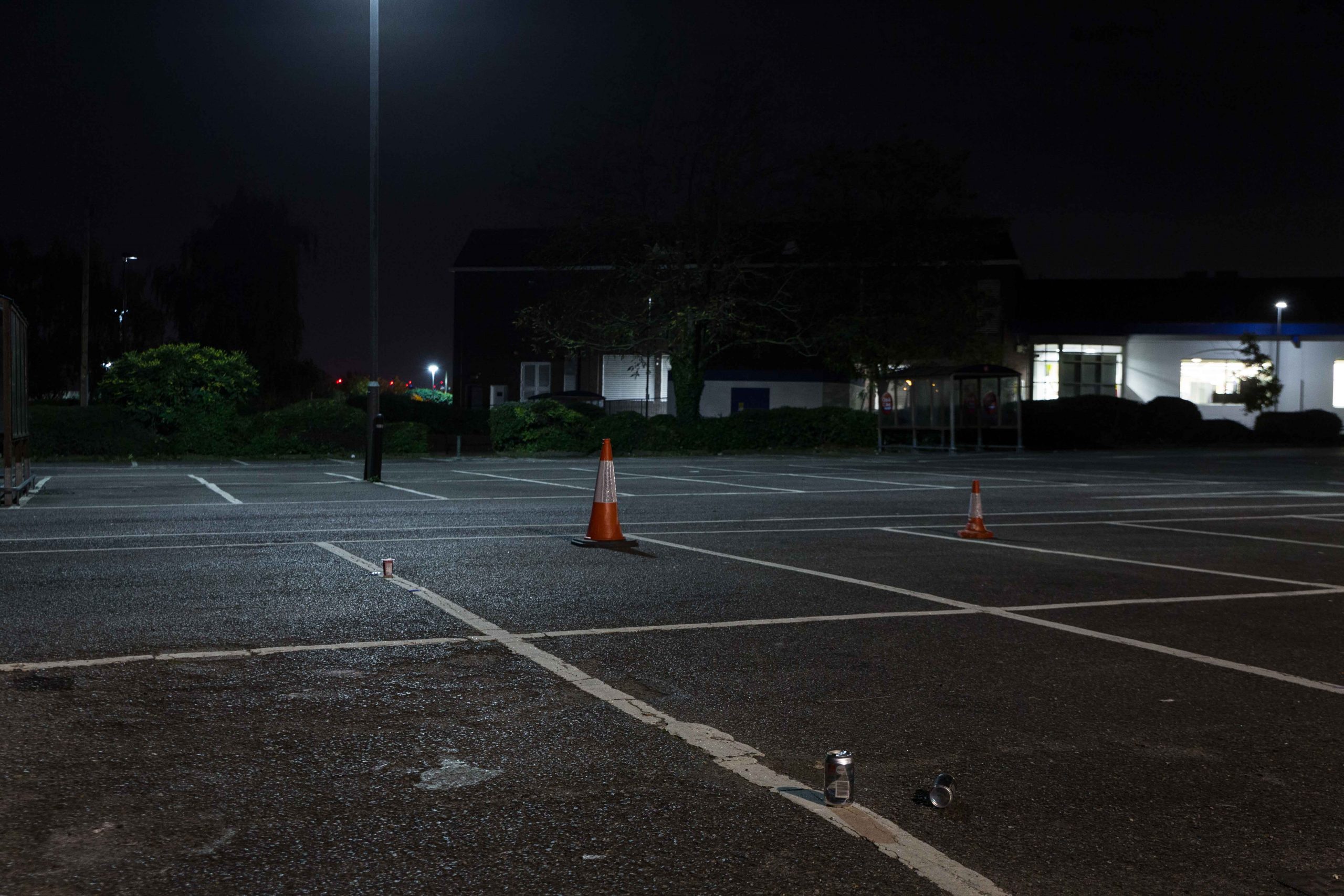
© Justin Carey
Reaching Out Into The Dark is an ongoing project and Justin would warmly welcome your contact about the project for any reason, particularly if you might be interested in participating in some way, or being one of the future subjects. To find out more about this project visit https://www.reachingout.gallery
See Justins’s Shutter Hub portfolio here, and visit his website here.
Not a Shutter Hub member yet? Join here for opportunities to promote your work online and in exhibitions, access selected opportunities, events, seminars and workshops, meet up and share photographic experiences, and become part of our growing community…


